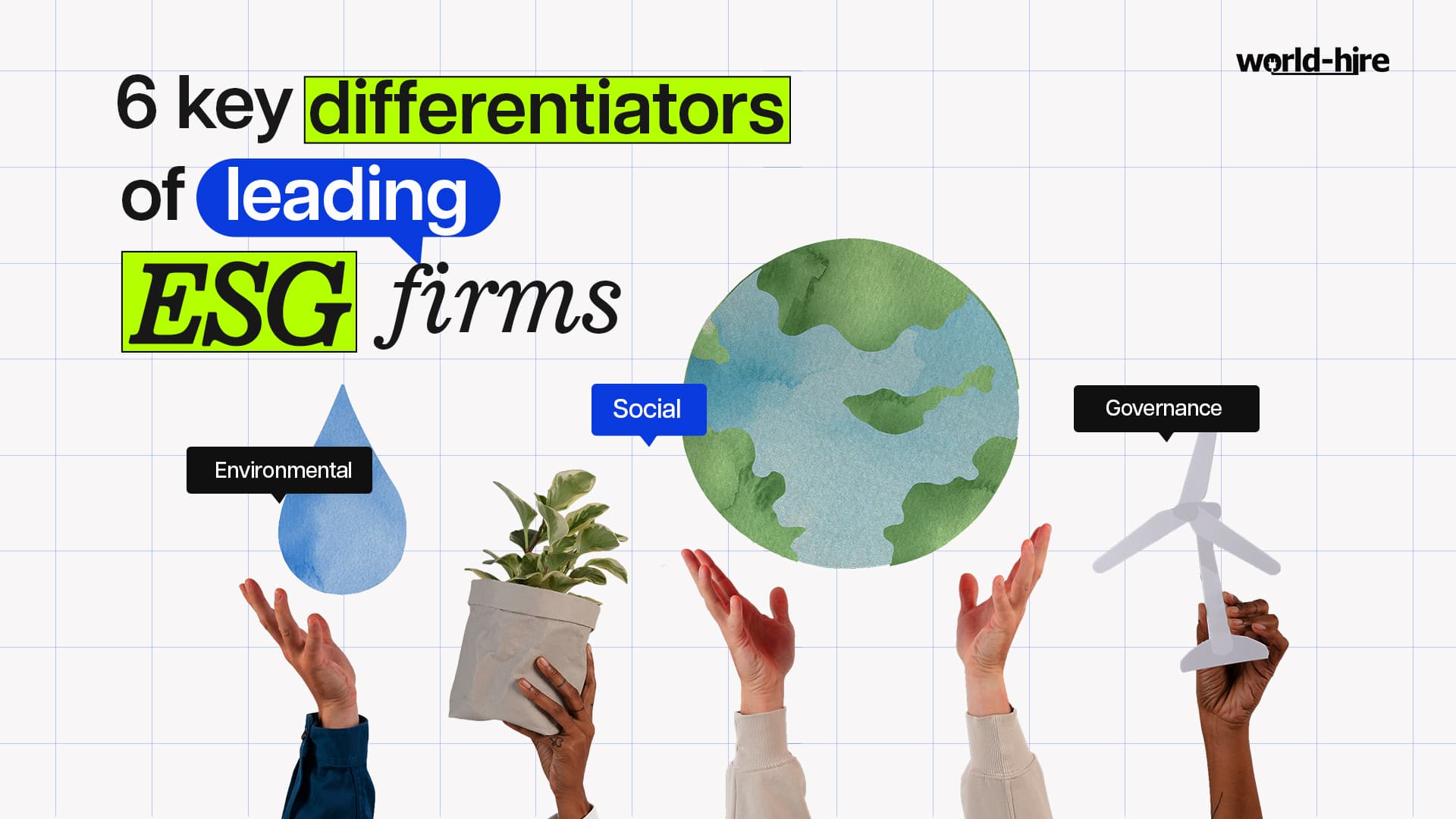ESG (Environmental, Social, and Governance) investing has gained immense popularity over the past few years, and for good reason. ESG firms, that are committed to sustainable practices and are socially responsible, have been proven to outperform their peers. ESG investing involves taking a holistic approach to investment, where investors consider not just the financial performance of a company but also its ESG performance. In this blog, we will discuss the six key differentiators of leading ESG firms.
Commitment to Sustainability:
Leading ESG firms prioritize sustainability, and it is a core part of their business strategy. They focus on reducing their carbon footprint, managing waste, conserving resources, and promoting sustainable practices throughout their supply chains. These firms invest in sustainable technologies, processes, and products that reduce their impact on the environment and promote a sustainable future.
The commitment to sustainability goes beyond just environmental concerns. These firms also prioritize social sustainability and work towards creating an inclusive workplace and promoting social justice. This commitment to sustainability is reflected in their ESG ratings, where they score high on environmental, social, and governance metrics.
Transparency and Disclosure Practices:
Leading ESG firms are transparent in their reporting and disclosure practices. They provide comprehensive information about their ESG performance, goals, and initiatives, which enables investors to make informed decisions. These firms not only report on their positive performance but also their challenges and risks, demonstrating their commitment to transparency and accountability.
These companies have robust reporting frameworks in place that align with recognized standards such as the Global Reporting Initiative (GRI) and the Sustainability Accounting Standards Board (SASB). These frameworks enable companies to communicate their ESG performance to investors effectively.
Stakeholder Engagement:
Leading ESG firms engage with their stakeholders, including employees, customers, suppliers, and communities, to understand their needs and concerns. They use this information to develop ESG strategies that align with stakeholder expectations. These firms prioritize building relationships with their stakeholders, as they understand that their success is linked to the well-being of the communities in which they operate.
By engaging with their stakeholders, these companies can identify and address potential risks and opportunities, promoting long-term sustainability. For example, these firms prioritize responsible sourcing practices, ensuring that their suppliers follow ethical and sustainable practices.
Responsible Governance:
Leading ESG firms have strong governance structures and practices in place that ensure accountability and responsible decision-making. These companies have diverse and independent boards, robust risk management systems, and ethical codes of conduct. They prioritize ethical behavior, fairness, and transparency in all their operations.
These firms understand that responsible governance is critical to maintaining the trust of their stakeholders, and hence, they prioritize it. They not only comply with legal and regulatory requirements but also go beyond them to ensure responsible governance. For example, these firms prioritize board diversity and independence, promoting a culture of responsible decision-making.
Strong Ethical Values:
Leading ESG firms uphold strong ethical values and principles, promoting fairness, respect, and integrity in all their operations and relationships. These firms prioritize doing the right thing, even when it is not the easiest or most profitable decision. They take responsibility for their actions and hold themselves accountable for their impact on society.
By upholding strong ethical values, these companies can build trust with their stakeholders, attracting investment and promoting long-term sustainability. For example, these firms prioritize ethical sourcing practices, ensuring that their suppliers follow ethical and sustainable practices.
Long-term Thinking:
Leading ESG firms take a long-term perspective, focusing on creating sustainable value for their stakeholders. They prioritize investments in sustainable technologies, processes, and products that will benefit the company and society in the long run. These firms understand that sustainable practices are not only good for the environment but are also good for business.
By taking a long-term perspective, these companies can avoid short-term thinking that may prioritize immediate financial gains over long-term sustainability. This approach not only benefits the company but also the wider community and environment, promoting a sustainable future for all.
Conclusion:
In conclusion, leading ESG firms prioritize sustainability, transparency, stakeholder engagement, responsible governance, ethical values, and long-term thinking. These six key differentiators set them apart from their peers and enable them to create sustainable value for their stakeholders. By prioritizing ESG factors, these firms not only promote sustainable practices but also outperform their peers, providing attractive returns for investors. As the world continues to face environmental and social challenges, ESG investing and the companies that prioritize it will play a critical role in promoting a sustainable future for all.









